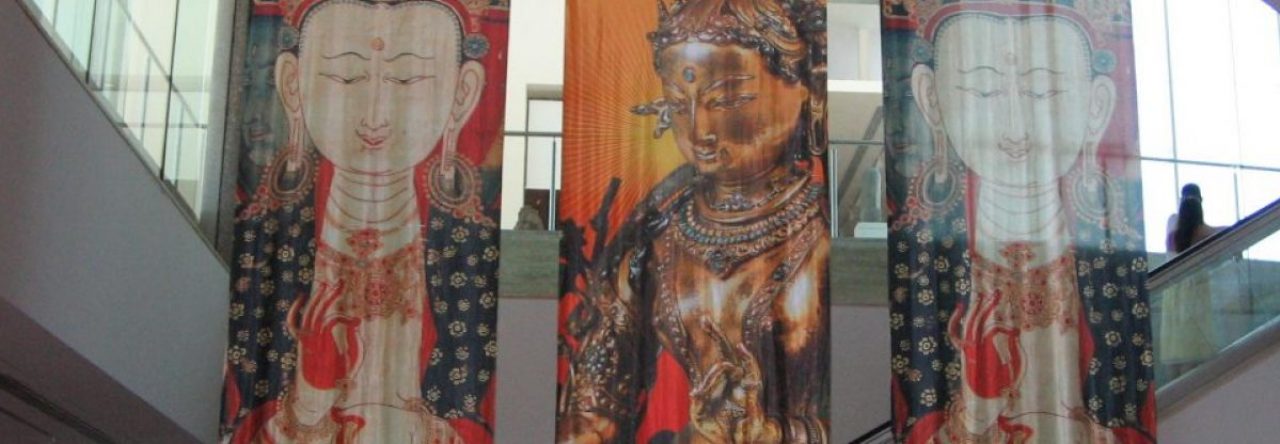This week: Week 3 – Chapter Two from Sue Hamilton-Blyth’s I of the Beholder: The Indian Context.
Last week, we looked at two main things about human experiencing as presented by the early Buddhist literature. We talked about how the Buddha saw ‘experiencing’ in terms of five particular sentient processes (that is, the khandhas/skandhas – body, feeling-tones or sensations, perceptions, mental tendencies, and conscoiusness). It is these we need to understand to be free. We also looked at how he addressed a particular obstacle to meditating on the skandhas – that is, views to do with the ‘self’ or the ‘knower’ of experiencing.
FOR THE THIRD WEEK, the conversation is about: Chapter Two: The Indian Context. I will give introductory talk in which I will go more deeply into the historical and cultural material (a little of which I introduced last week). In particular look at the implications of the cultural context of the Buddha’s time, for how we understand his teaching of ‘the Middle Way.’ In particular we will think together about the difficulties of relating teachings which arose from that cultural context to our modern Western situation.
Future weeks’ topics:
Week 4 – Chapter Four: The World of Experience.
Week 5 – Chapter Five: The Experience of Subjectivity and Objectivity.
Week 6 – Chapter Six: The Structure of Experience.
Week 7 – Chapter Seven: The Limits of Experience.
Week 8 – Chapter Eight: A World of Metaphor: Continuity, Death and Ethics.
And, the ninth and closing session (23 October) will be focussed on the book’s postscript: On What is a human being?
As always, in my courses, bodily-felt experience is the touchstone. I will invite participants to consult their bodily-felt meaning of the Buddhist concepts, and to experience the vision in terms of a ‘process orientation.’ If you have some ‘Focusing’ experience, this course is made for you. If not, you will learn, as we proceed, to use your body’s ‘felt sense’ for insight.
Reference: Sue Hamilton-Blyth, Early Buddhism – A New Approach: the I of the Beholder.
- Christopher Ash, 8 September 2022.
